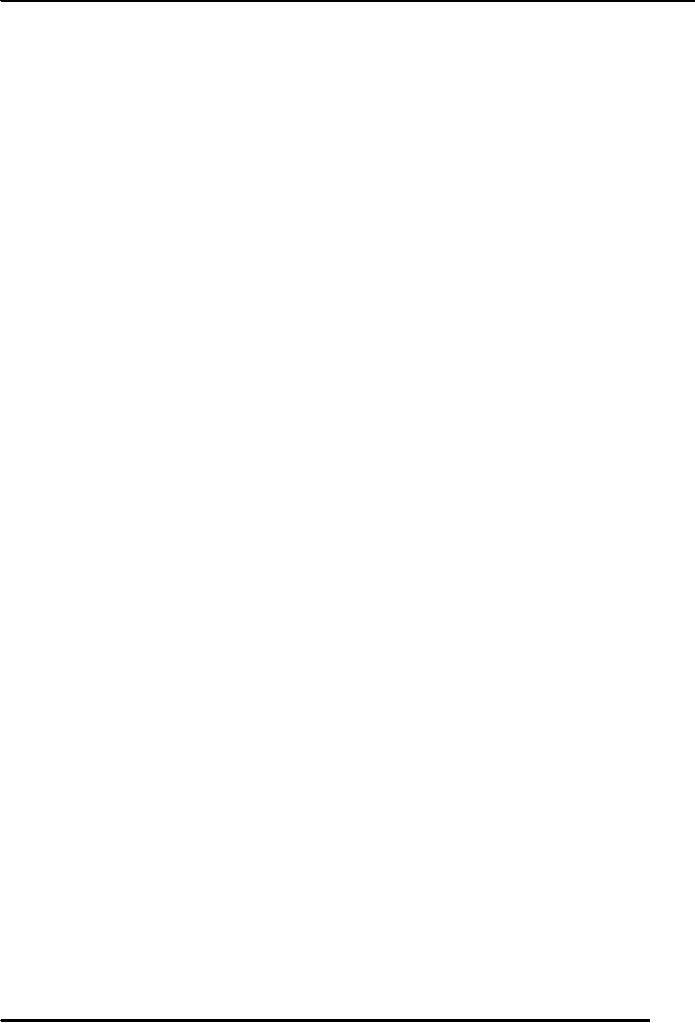 |

Human
Relations MGMT611
VU
Lesson
29
IMPROVING
WORK HABITS-1
(Dealing
with Procrastination)
Developing
good work habits
Good
work habits means, being
organized and prioritizing
tasks according to their importance.
Good work
habits
and time management are
extremely important because of the
current emphasis on enhancing
productivity.
They are also important for
the personal success. Effective
work habits are beneficial
for
yourself
and your organization, because if
you have good work
habits, you have control
over yourself, and if
you
have control over yourself
you are productive, and if
you are productive you
have good human
relations.
Work
habits refer to a person's characteristic
approach to work, including
such things as organization,
priority
setting, and handling of
paper work and
e-mail.
Procrastination
The
productivity can be enhanced by
improving work habits relating to
procrastination. Productivity is the
amount
of quality work done with the
resources consumed. The
leading cause of poor
productivity and
career
self-sabotage is procrastination,
delaying
a task for an invalid or
weak reason. Even
productive
people
have problems with procrastination at
times.
Reasons
of procrastination
Delaying
or postponing of assignments makes
you less productive or
unproductive. There may be a
number
of
reasons of procrastination.
Key
reasons for procrastination
include:
(1)
Unpleasant tasks
If
you do not like the tasks or
assignments which you are
supposed to do, might be the
reason of
delaying
them.
(2)
Overwhelming
Sometimes
you think that the task
given to you is so huge that
you can not handle,
you keep on
hesitating
to initiate it.
(3)
Concerns about negative consequences of
one's work
Sometimes
the fear of negative results of
doing a task becomes the
reason of postponing
it.
(4)
Fear of success (worry
about assuming too much
responsibility)
Just
like the fear of failure, the fear of
success also becomes a hindrance in
performing a task. One
thinks
if he/she successfully completes
some task he/she might be
chosen for some bigger
assignment.
(5)
Lack of a perceived meaningful
reward for doing the
task
If
you feel that you would
not be rewarded meaningfully,
you would hesitate to do
that work.
Rebellion
against being controlled
Another
reason of procrastination is that you do
not like to be controlled by
others. You think that
you
will
do your work as and whenever
you like it to do.
(6)
Enjoyment of the rush
derived from scrambling to
make a deadline
Some
people enjoy doing things at the eleventh
hour.
(7)
Perfectionism
People
also become victim of procrastination
due to the habit of perfectionism.
The
tendency of perfectionism can be measured
through this self-assessment
quiz.
88

Human
Relations MGMT611
VU
Human
Relations Self Assessment
Quiz
Tendencies
towards perfectionism
Many
perfectionists hold some of the
behaviours and attitudes
described below. To help
understand
your tendencies toward perfectionism,
rate how strongly you agree with
each of the
statements
below on a scale of
0-4.
1
Many
people have told me that I am a
perfectionist
01234
2
I
often correct the speech of
others
01234
3
It
takes me a long time to write an email
because I keep checking
and
01234
checking
my writing
4
I often criticize the colour
combinations my friends are
wearing
01234
5
When I purchase food at a
super market, I usually look at
the expiry date,
01234
so
I can purchase the
freshest
6
I can't stand when people
use the term `remote'
instead of `remote
control'
01234
7
If a company representative asked
me `what is your social', I would
reply
01234
something
like, `do you mean my social
security number'
8
I hate to see dust on
furniture
01234
9
I like the Saima's
idea of having every
decoration in the home just
right
01234
10
I never put a map back in
the glove compartment until
it is folded just right
01234
11
Once an eraser on a pencil of
mine becomes hard and
useless, I throw the
01234
pencil
away
12
I adjust all my watches and clocks so
they show exactly the same
time
01234
13
It bothers me that clocks on personal
computers are usually wrong
by a
01234
few
minutes
14
I cleaned the key board on my computer at
least once a week
01234
15
I organize my email messages and computer
documents into many
01234
different,
clearly labeled files
16
You won't find old
coffee cups or soft drink
containers on my desk
01234
17
I rarely start a new project
or assignment until I have completed
my
01234
present
project or assignment
18
It is very difficult for me to
concentrate when my work area
is
01234
disorganized
19
Cow webs in chandeliers and
other lighting fixtures bug
me
01234
20
It takes me a long time to
make a purchase such as a
digital camera
01234
because
I keep studying the features on various
models
89

Human
Relations MGMT611
VU
21
When I balance my cheque
book, it usually comes out
right within a few
01234
Rupees
22
I carry enough small coins and
Rupee notes with me so when I
shop I can
01234
pay
the exact amount without
requiring change
23
I throw out any underwear or
T-shirts that have even the
smallest holes or
01234
tears
24
I become upset with myself
if I make a mistake
0
1
2
3
4
25
When a finger nail of mine is
broken or chipped, I fix it as
soon as possible
0
1
2
3
4
26
I am carefully groomed whenever I
leave my home
0
1
2
3
4
27
When I noticed packaged
goods or cans on the floor
in a supermarket, I
0
1
2
3
4
will
often place them back on the
shelf
28
I think that carrying around
antibacterial cleaner for
the hands is an
01234
excellent
idea
29
If I am with a friend, and he or she
has a loose hair on the
shoulder, I will
01234
remove
it without asking
30
I know that I am a perfectionist
01234
Scoring
91+: You
have strong perfectionist
tendencies to the point that it could
interfere with
your
taking quick action when necessary.
Also, you may annoy many
people with your
perfectionism.
Scoring
61-90: Moderate
degree of perfectionism that could lead
you to produce high
quality
work
and be a dependable
person.
Scoring
31-60: Mild
degree of perfectionism. You
might be a perfectionist in some
situations
quite
important to you, but not in
others.
Scoring
0-30: Not a
perfectionist. You might be
too casual about getting
things done right,
meeting
deadlines and being aware of
details.
Source:
DuBrin,
Andrew J. `Human Relations: Career
and Personal Success',
Pearson Prentice Hall,
2005.
Techniques
for Reducing Procrastination
Being
aware of the productivity consequences of
procrastination is a good start for
reducing
procrastination.
A few specific techniques are
also helpful.
1.
Cost
of procrastination
2.
Counter
attack
3.
Jump-start
4.
Sub-divide the
large task
5.
Motivate
yourself with rewards and
punishments
6.
WIFO
(worst in first out)
7.
Commitment to
other people
8.
Express
positivity
1.
Calculate
the Cost of Procrastination
Lost
opportunity is a major cost. A useful
example of a direct cost is procrastinating about
adding motor oil
to
your auto (about Rs500), and
then have to replace the
motor (about Rs50,000).
2.
Counterattack
Force
yourself to do something overwhelming, frightening, or
uncomfortable. It may prove that the
task
was
not as bad as initially
perceived.
3.
Jump-Start
Yourself
You
can often get momentum going on a
project by giving yourself a tiny
assignment just to get
started.
One
approach is to set a specific time
for working on the overwhelming task.
Another jump-start is to find
a
leading task (an easy
warm-up activity) to perform.
90

Human
Relations MGMT611
VU
4.
Sub-divide
the Large Task
If
the task allows for it, just
peck away a little bit at a
time until the project gets
down to manageable
size.
Another
approach is to subdivide the task into
smaller units.
5.
Motivate
Yourself with Rewards and
Punishments
Behavior
modification can sometimes be applied
successfully to overcoming procrastination.
6.
Follow
the WIFO Principle
Use
the technique of worst in, first out,
for dealing with unpleasant
tasks you would prefer to avoid.
A
related
motivational principle is that after
completing the unpleasant task, moving on
to a more pleasant
(or
less
unpleasant) task functions as a
reward.
7.
Make
a Commitment to Other People
If
others know you are
committed to accomplishing something by a given
date, you are less
likely to
procrastinate.
Avoiding embarrassment acts as a strong
motivator in this situation. It can help
you stop
delaying
tasks.
8.
Express
positivity
Express
a More Positive Attitude about
Your Intentions. If you
choose words that express a
serious
intention
to complete an activity you
are more likely to follow
through than if you choose
uncertain words.
"I
will" is more compelling than "I
might."
References:
Dubrin,
A.J. (2005). Human Relations:
Career and Personal Success.
Upper Saddle River, New
Jersey,
07458.
91
Table of Contents:
- HUMAN RELATIONS:Some Guidelines for Effective Human Relations, Communication has 3meanings
- CULTURE AND PERSONALITY:Definition of sub culture, Definition of Personality, Types of Persons
- PERSONALITY AND STRESS:Personality, PERSONAL TOOLS TO CONTROL STRESS
- PERCEPTION AND INDIVIDUAL BEHAVIOUR:Three concepts of personality, Bias in Perception
- PERCEPTION AND GROUP BEHAVIOR:Characteristics of Groups, Individual and Group Behavior
- ATTITUDE AND BEHAVIOUR:Types of Attitudes, Steps to turn attitude into action
- PERSONAL MOTIVATION AND ACHIEVEMENT:Needs and Motivation, Self-discipline and motivation
- SOLVING PROBLEMS SKILLFULLY:Problem solving and cognition, Ways to solve problems
- CREATIVITY IN PROBLEM SOLVING:Barriers to creativity, Tips to solve problems creatively
- HANDLING PERSONAL ISSUES:Self-Defeating Behaviour, Positive attitude to tackle personal problems
- CONFLICT RESOLUTION:WHY SO MUCH CONFLICT EXISTS, TECHNIQUES FOR RESOLVING CONFLICTS
- COMMUNICATION AND HUMAN RELATIONS:Process of communication, Improving gender barriers to communication
- ORGANIZATIONAL COMMUNICATION:To improve listening skills, Types of organizational communication
- UNDERSTANDING COMMUNICATION STYLES:Modeling communication style, Sociability continuum
- SELF-ESTEEM:Building process of self-esteem, Self-esteem and public image
- BUILDING SELF-CONFIDENCE:The importance of self-confidence and self-efficacy, Balanced Self-Confidence:
- BECOMING A LEADER-1:Assessing leadership role, Traits and Characteristics of Effective Leaders
- BECOMING A LEADER-II:Theories of leadership, Developing leadership potential
- GLOBALIZATION AND CROSS-CULTURAL DIFFERENCES:Religious Values and Bicultural Identities
- IMPROVING CROSS-CULTURAL COMPETENCE:Strategies to improve cross-cultural relations, More steps to improve Cultural Relations
- BUILDING GOOD RELATIONS WITH MANAGERS:Impressing your manager, Coping with a problem manager
- BUILDING GOOD RELATIONS WITH CO-WORKERS:Make Co-workers feel important, Maintain Honest and Open Relationships
- BUILDING GOOD RELATIONS WITH CUSTOMERS:Salesperson Represents the Business, Approaching the Customer, Excuses vs. Objections
- CHOOSING A CAREER-1:Ten Myths about Choosing a Career, Attitude toward and Perceptions about Myself
- CHOOSING A CAREER-II:Choosing a career and developing a portfolio Career, Suggestions for career Preparation
- FINDING A JOB:Targeting your job search, The Internet and Résumé Database Services, Extreme Job Hunting
- SIGNIFICANCE OF RESUME:Major types of resumes, Electronic Submission of the Résumé
- IMPROVING INTERVIEW SKILLS:Successful interview, Knowing the employer or Organization
- IMPROVING WORK HABITS-1:Reasons of procrastination, Techniques for Reducing Procrastination
- IMPROVING WORK HABITS-2:Developing the proper attitudes and values, Time-management techniques
- NEW MODEL OF CAREER ADVANCEMENT:Career portability, HUMAN RELATIONS SELF-ASSESSMENT
- TAKING CONTROL OF YOURSELF:Develop Outstanding Interpersonal Skills, Business etiquettes
- EXERTING CONTROL ON OUTSIDE ENVIRONMENT:Important communication tip, Exerting control over the outside world
- MANAGING PERSONAL FINANCES-1:Your personal financial plan, Steps in budget making
- MANAGING PERSONAL FINANCES-2:Basic investment principles, Tolerance for Investment Risks, Types of investments
- ACHIEVING HAPPINESS-1:Finding happiness and enhancing your personal life, The key to happiness
- ACHIEVING HAPPINESS-2:The Five Principles of Psychological Functioning, Your mind and Happiness
- ACHIEVING HAPPINESS-3:Need for intimacy, Working out issues with relationships
- APATHY AND ITS REMEDIES:Let us try to understand the various definitions of apathy, Coping strategies for apathy
- ENHANCING PERSONAL ETHICS-1:Influence of Culture, Common ethical problems
- ENHANCING PERSONAL ETHICS-2:Common ethical problems, Guidelines for Behaving Ethically
- HELPING OTHERS GROW:Being a Nurturing, Positive Person, A list of mentoring behaviour, Coaching skills and techniques
- REVIEW-I:What is a Human Relation?, Meanings of Communication, Two types of stress, Some personal problem, Communication style
- REVIEW-II:Steps to build self-confidence, Globalization, Building Good Relations with Co-workers, Good work habits
- REVIEW-III:New model of career advancement, Choosing your investment, Tactics for Dealing with Difficult People